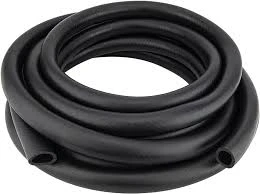Efficient Fuel Delivery Systems for Automotive Applications and Beyond
វិច្ឆិកា . 30, 2024 20:58 Back to list
Efficient Fuel Delivery Systems for Automotive Applications and Beyond
The Importance of Petrol Pipes in Modern Infrastructure
The modern world runs on fuel, and at the heart of this extensive network are petrol pipes, which are vital for the transportation of petroleum products. These pipes, often overlooked in everyday discussions about energy and transportation, play a crucial role in ensuring that gasoline, diesel, and other liquid fuels reach gas stations and other end-users safely and efficiently.
Understanding Petrol Pipes
Petrol pipes are specialized tubes designed to transport petroleum and its derivatives under various conditions. Typically made from high-grade materials such as stainless steel, carbon steel, or reinforced polymers, these pipes must withstand not only the internal pressure of the fluid being transported but also external environmental conditions.
The design and construction of petrol pipes are governed by strict regulatory standards to ensure safety and minimize risks associated with leaks or ruptures. Such incidents can lead to significant environmental hazards, including soil and water contamination, as well as fire or explosion risks. Therefore, rigorous testing, quality control, and regular maintenance are integral to the lifecycle of these transport systems.
Types of Petrol Pipes
There are various types of petrol pipes, each serving specific functions within the petroleum supply chain
. For instance1. Transmission Pipelines These are large-diameter pipes that transport crude oil from extraction sites to refineries. They can span thousands of kilometers and often cross diverse terrains, including mountains, rivers, and urban areas.
2. Distribution Pipelines After refining, petroleum products are transferred through distribution pipelines to regional facilities and storage tanks. These pipes ensure that fuel is delivered efficiently to various locations, such as gas stations and industrial users.
petrol pipe

3. Storage Tanks and Pipelines Once the petrol arrives at distribution hubs, it is stored in enormous tanks before being piped to the end consumer. The integrity of storage tanks and connecting pipes is critical in preventing leaks and ensuring the right products are delivered as needed.
Safety Measures and Technologies
With the inherent risks associated with transporting flammable liquids, the industry has implemented advanced safety measures. For instance, leak detection systems are in place along many pipelines to monitor for any signs of spills. These systems can quickly alert operators to potential issues, allowing for rapid response to mitigate environmental impacts.
Additionally, the use of smart technologies has revolutionized the monitoring of petrol pipes. Sensors and automated systems can provide real-time data on pressure, temperature, and flow rates, allowing for proactive management of pipeline health. Regular inspections using drones or robotic technology have also become commonplace, enabling detailed assessments without disrupting the flow of operations.
Environmental Considerations
While petrol pipes are essential for energy logistics, they are not without their environmental challenges. Accidental spills, although relatively rare due to stringent safety protocols, can have devastating effects on ecosystems. Consequently, companies are increasingly investing in more sustainable practices, including the use of double-walled pipes and environmentally friendly materials.
Moreover, the shift towards renewable energy sources has sparked discussions about the future of petrol pipes. As societies aim for greener alternatives, the infrastructure surrounding oil transportation may transform, culminating in the adaptation of existing pipelines to carry biofuels or hydrogen. Innovations in pipeline technology will play a critical role in aligning with global sustainability goals.
Conclusion
In conclusion, petrol pipes are a fundamental aspect of the petroleum supply chain, facilitating the safe and efficient transport of fuels across vast distances. With ongoing advancements in technology and emphasis on safety and environmental responsibility, these pipelines will continue to evolve, meeting the demands of modern society while addressing the challenges posed by climate change and the transition to renewable energy sources. As the backbone of the energy industry, understanding the role of petrol pipes is indispensable for grasping the complexities of our energy landscape and ensuring a sustainable future.
